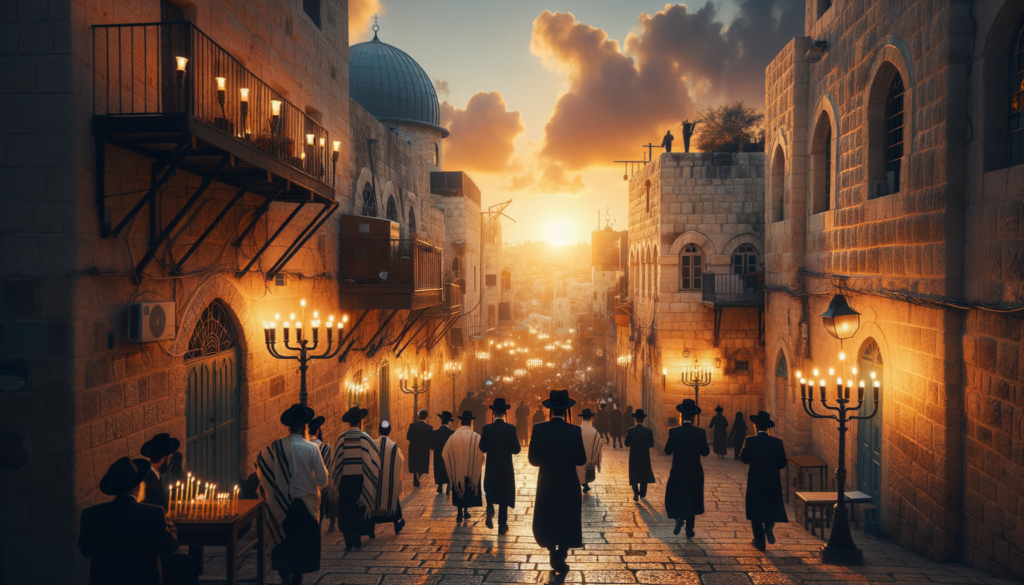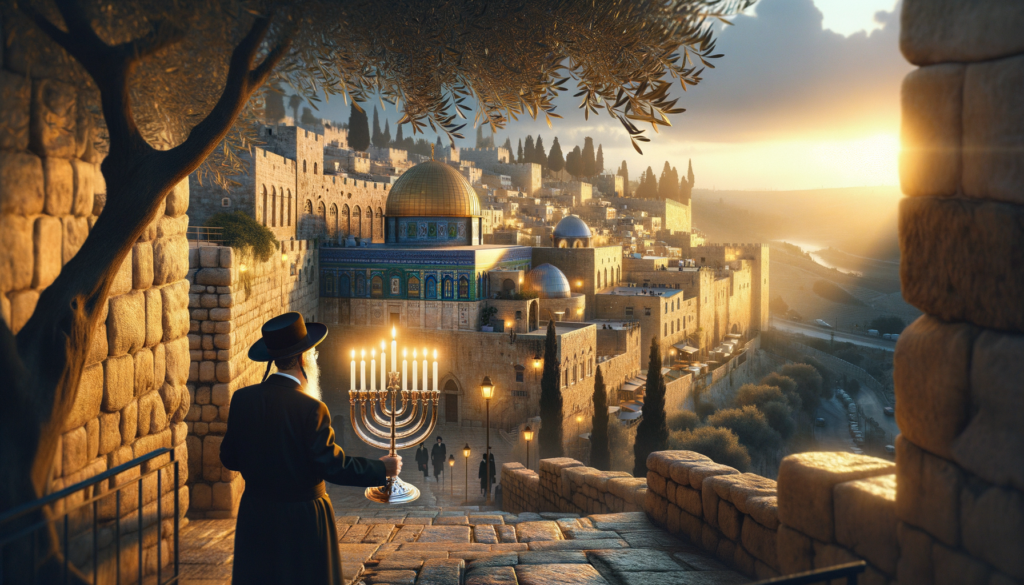What Does the Name Zion Mean in the Bible?

The name ‘Zion’ resonates with profound depth and emotion throughout the pages of the Hebrew Bible. It is far more than a simple geographical label; it is a symbol that carries the weight of history, the warmth of belonging, and the enduring hope of a people. For generations, the word has evoked a powerful connection to the Land of Israel and its spiritual heart. In this article, we will journey through the rich layers that constitute the meaning of Zion in the Bible, exploring its origins as a physical location and its beautiful evolution into one of the most cherished concepts in Jewish tradition, all within the context of the Tanakh.
The Origin of the Name Zion in the Hebrew Bible
To truly understand Zion, we must begin with its most tangible, earliest definition. The first mentions of Zion in the Tanakh refer to a specific, strategic location. The Second Book of Samuel (5:7) provides the foundational context: ‘Nevertheless, David captured the fortress of Zion, which is the City of David.’ This verse is crucial because it grounds the later, more abstract meanings of Zion in a real, historical place. It was originally a fortified hill in Jerusalem, a stronghold of the Jebusites that became the political and military nucleus of King David’s kingdom. This geographical anchor is the starting point for the entire journey of the name’s significance, a tangible piece of land that would grow into a world-changing idea. The name itself, while its exact etymology is debated by scholars, is often associated with terms for ‘fortification’ or ‘dry place,’ fitting for a defensible hilltop fortress in the Judean landscape.
Zion and the City of David
After its capture, the ‘fortress of Zion’ was renamed the ‘City of David.’ For a time, the two names were essentially interchangeable, referring to the same walled settlement on the southeastern hill of Jerusalem. This was the royal capital, the administrative and military heart of the unified kingdom of Israel. The choice of this location was strategic, but it quickly took on a significance that transcended military matters. It became the symbol of the new monarchy and the center of the nation’s identity. All political and religious life began to revolve around this place. Understanding this initial phase is key to appreciating the expanding meaning of Zion in the Bible, as it marks the moment the name became tied not just to a place, but to the destiny of a people.
Zion as the Temple and the Spiritual Heart of Jerusalem
The significance of Zion expanded dramatically with the construction of the First Temple by King Solomon on Mount Moriah, a hill adjacent to the City of David. As the dwelling place for the Divine Presence on Earth, the Temple sanctified its surroundings. The name ‘Zion’ soon grew to encompass this sacred space as well, transforming it from a royal citadel into the spiritual center of the nation. The Psalms, in particular, are filled with references that link Zion directly with the Temple and divine sanctity. The physical structure of the Temple became the ultimate expression of the covenant, and Zion became the name that evoked its holy presence. This theological shift was monumental, cementing Zion’s place as the spiritual core of Jerusalem for all time.
Zion in the Book of Psalms
In the Book of Psalms, ‘Zion’ is frequently used to evoke feelings of joy, security, and spiritual longing. It is celebrated as the place of divine choice and protection. For example, Psalm 132:13 states, ‘For the Lord has chosen Zion; He has desired it for His dwelling place.’ Another, Psalm 48, describes it as ‘the city of our Mighty One… beautiful in elevation, is the joy of all the earth.’ This connection elevated the meaning of Zion in the Bible beyond a mere location to a place of profound spiritual connection and a central theme in the devotional life of the people. It was the source of strength and the object of heartfelt yearning.
Zion in the Prophets: Hope and Redemption
In the prophetic books of the Tanakh, Zion takes on its most profound symbolic meaning. For prophets like Isaiah, Zion became a beacon of hope and a promise of future restoration. During times of exile and hardship, the memory of Zion provided a powerful source of comfort and resilience. It represented the promise of return and rebuilding. The prophet Isaiah famously speaks of a future time when ‘the law shall go forth from Zion, and the word of the Lord from Jerusalem’ (Isaiah 2:3), envisioning it as a future center of wisdom and peace. This prophetic vision elevated Zion into a symbol of ultimate redemption and the unbreakable bond between the people and their homeland.
Zion as a Symbol of the Jewish People
The Tanakh frequently personifies Zion, referring to it as the ‘Daughter of Zion’ (Bat Tzion). This tender phrase, found in the books of Isaiah, Jeremiah, and Zechariah, refers not to the stones of the city but to its inhabitants—the collective community of Israel. It casts Jerusalem in the role of a mother figure, and its people as her cherished children. This linguistic shift highlights the deep, familial bond between the people and their spiritual homeland. In this sense, the meaning of Zion in the Bible also encompasses the very heart and soul of the nation itself, portraying a relationship built on love, heritage, and mutual identity. It becomes clear that Zion is not just a place you can find on a map, but a home that resides in the heart of a people.
Zion in Later Biblical Books
Beyond the Torah and the early historical accounts, later biblical texts expand the imagery of Zion even further. In Jeremiah, Zion is described as a place of both judgment and renewal, symbolizing the tension between divine justice and mercy. The prophet Micah envisions Zion as the epicenter of future peace, where nations will beat their swords into plowshares. Zechariah describes Zion as rejoicing greatly, a vision later tied to messianic hope. These layers deepen the meaning of Zion, making it not only a geographical or spiritual site but also a prophetic symbol pointing toward a better future.
Zion in Post-Biblical Jewish Thought
In rabbinic literature, Zion continued to serve as the heart of Jewish imagination and longing. The Talmud and Midrashim frequently reference Zion when speaking of the Temple, divine presence, or ultimate redemption. Jewish liturgy incorporated constant reminders of Zion, from daily prayers to the concluding words of the Passover Seder, ‘Next year in Jerusalem!’ Even in exile, Jewish communities across the world oriented their prayers toward Zion, keeping alive the spiritual connection to the ancestral homeland. This enduring presence in ritual and thought helped sustain the Jewish people through centuries of dispersion.
Zion in Modern Jewish Identity
In modern times, the idea of Zion became central to Jewish national revival. The rise of the Zionist movement in the 19th and 20th centuries reframed Zion as not only a spiritual metaphor but also a political aspiration: the return of the Jewish people to their ancestral land. The term ‘Zionism’ itself reflects this transition, carrying forward the biblical and liturgical yearning into tangible efforts to rebuild Jewish sovereignty in the Land of Israel. Today, the State of Israel is often referred to as Zion in poetry, song, and political discourse, connecting the ancient symbol with modern identity and self-determination.
Cultural and Literary Influence of Zion
The influence of Zion extends beyond religion into literature, music, and culture. Poets from Yehuda Halevi to modern Israeli writers have evoked Zion as a symbol of yearning and hope. In African American spirituals, ‘Zion’ was often used to signify freedom and deliverance, testifying to its universal resonance. Contemporary music, from reggae to gospel, continues to use Zion as an emblem of justice, peace, and spiritual connection. This broad cultural reach demonstrates the remarkable adaptability of Zion as a concept, capable of inspiring diverse peoples across time and space.




